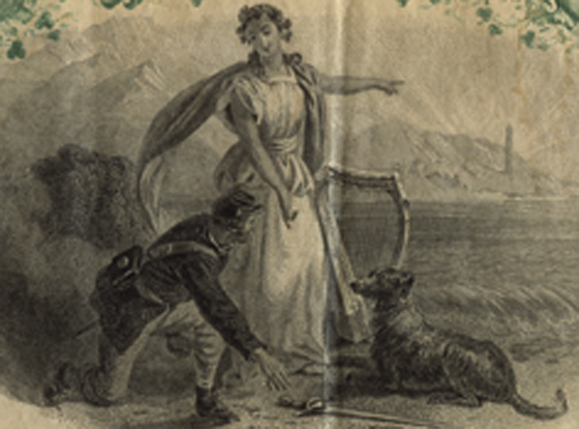“No New York. No America. No Easter Rising. It’s simple as that.”
– Director of Glucksman Ireland House, NYU, J.J. Lee
While editing the articles in this issue, I was struck by two related observations: without the Irish in America the 1916 Rising would not have happened; and Britain sealed its fate by implementing its terror policies, and allowing a famine that forced millions to leave Ireland for America.
As far back as pre-Revolution days, the Irish found a home in America. The United Irishmen took their lead from the American Revolution in an early quest for Irish independence, and after the failed rebellion of 1798, many of them settled in the U.S. – including the family of Arthur Schlesinger, Jr. whose story is in this issue.
Half a century later, the Great Famine would begin a new phase in the history of the Irish. The flood of immigration from the mid- through the end of the 19th century was so strong that the Irish became a major American presence. By 1860, New York was the largest Irish city in the world. Boston, Philadelphia, Baltimore and other port cities also saw a large influx of Irish. Many of those immigrants would fight in the American Civil War, and some used that experience to inspire another rebellion in Ireland in 1867. When that rebellion also failed, many of the rebels made their way to America where they continued the quest for Ireland’s freedom.
After the Civil War, the Irish spread out across the country laying track for the transcontinental railroad, finding employment in expanding industrial cities like Chicago, and passing on the dream of Irish freedom to the next generation. And it was to these Irish Americans that Éamon de Valera turned when he made his almost two-year trip across America (1919-20) and raised $6 million for the fledgling Irish Free State back home.
America not only galvanized Ireland’s fight for independence, but also became a protector of Irish heritage and culture. As I researched for this issue, I spent several happy hours at Villanova University’s digital library, lost in time, combing through de Valera papers in the Joseph McGarrity Collection (McGarrity managed de Valera’s tour of America). In the process, I was excited to come across a photograph of McGarrity greeting the Rebel Countess, Constance Markievicz, at Philadelphia’s train station in 1919.
The Countess, a major figure in the Rising, and the other women who took part, are especially interesting to me – and there is so much material available online now that wasn’t accessible 25 years ago when we commemorated the 75th Anniversary of the Rising. YouTube especially has a wealth of archival footage. On the site, you can hear Maud Gonne talking about founding the revolutionary women’s group The Daughters of Ireland, and hear Nora Connolly speak of a final visit to her father, James Connolly, the day before he was executed for his part in the rebellion.
But as we commemorate 1916, let us not forget the “ghosts of partition,” as Gerry Adams put it in a 1991 interview with this magazine. At the time, the conflict that ultimately took over 3,600 lives was still raging, but Adams spoke to me about it being time for a political solution. It was time for talks, he said, and he called on Irish Americans to get involved. And they did! In the next few years they rallied to the cause of a peaceful settlement to the conflict that had gone on since the partition of Ireland into two territories in 1921.
It was amazing for me to witness so much involvement; to see then president Bill Clinton, whose mother was a Cassidy, take up the cause; and others, including Jean Kennedy Smith, who in 1994 helped secure a U.S. visa for Adams, thus enabling him to address the American Irish here, preparing the way for the IRA “complete” ceasefire.
I was privy to the often-weekly information sessions put together by the American Committee on American Foreign Policy hosted by Bill Flynn and Tom Moran at the Mutual of America HQ in New York. In this setting, both sides of the Northern divide had an opportunity to air their grievances, and promote a better understanding of the situation on the ground. I also had the opportunity to meet and interview Clinton appointee George Mitchell, who chaired the talks that ultimately led to the Good Friday Agreement (which, like the Rising, also happened at Easter time). That historic document put in place the power-sharing government that successfully, peacefully, presides over Northern Ireland today.
I’ll let W.B. Yeats sum up the past 25 years: “All changed, changed utterly!” Change for Ireland would not have happened without America. And the beauty of it is, for all the great change, we are still Irish, as ever, always. ♦
_______________
Read Arthur Schlesinger, Jr.’s article about the United Irishmen and the 1798 rebellion here.


Leave a Reply